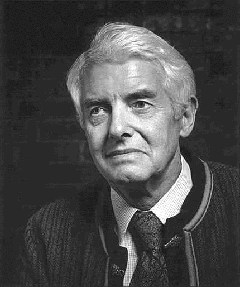Our Mission and History
”If we could take all the obsession with the personal, and personal judgment—and have people be concerned about the environment—what a different world we would live in.“
—bell hooks
A home for the environmental movement
By advocating for the beauty, diversity and ecological integrity of our planet and people, we accomplish our mission—through permanent infrastructure and ongoing programs:
- Inform the public about environmental challenges we all face and bold actions we must take to remain a living planet
- Inspire people to recognize their own power and responsibility to act on behalf of the Earth
- Connect individuals and organizations dedicated to social equity and ecological sustainability
We fulfill these commitments via:
- Art and Education—museum-quality exhibitions and public programs covering environmental issues and fostering engaged communities—including youth via our Art/Act: Educate program
- Resident Organizations—20+ nonprofits and social enterprises housed in the Brower Center who provide capacity building and networking opportunities
- a Conference Center—hosting 250+ events annually for nonprofit and private businesses, and strengthening the green event industry by requiring clients to abide by low-waste, green principles
Over 30,000 people participate in our programs each year—as the Brower Center gathers nonprofits, social entrepreneurs, artists, activists, and the general public in creative dialogue and action.
Who was David Brower?
“Let the mountains talk, let the river run. Once more, and forever.”
—David Brower
 Berkeley native David R. Brower is considered by many to be the father of the modern environmental movement. Eighty-eight years of courageous, contentious, and joyful activism made Brower one of the most successful advocates the Earth has ever known.
Berkeley native David R. Brower is considered by many to be the father of the modern environmental movement. Eighty-eight years of courageous, contentious, and joyful activism made Brower one of the most successful advocates the Earth has ever known.
A world-class mountaineer with more than 70 first ascents to his credit, Brower served as the first executive director of the Sierra Club (1952 - 1969). Under his tenure, the Club’s membership expanded tenfold, from 7,000 to 70,000 members, and became the nation’s leading environmental membership organization.
While with the Sierra Club, he pioneered the use of media advocacy, including taking out full-page newspaper ads to dramatically communicate conservation issues. Brower also initiated an aggressive publishing program that produced over 70 books over his lifetime - including oversize formats with stunning high-quality nature photographs.
David Brower later founded Friends of the Earth, a worldwide environmental network now active in 52 countries, and co-founded the League of Conservation Voters, the nation’s most influential environmental political action group. In 1982, Brower founded Earth Island Institute, an incubator organization that fosters and supports activist projects around the world.
Brower successfully fought to stop dams in Dinosaur National Monument and Grand Canyon National Park. He led campaigns to establish 10 new national parks and seashores, including Point Reyes, the North Cascades, and the Redwoods. He was instrumental in gaining passage of the Wilderness Act of 1964, which protects millions of acres of public lands.
Twice nominated for the Nobel Peace Prize, Brower was also instrumental in leading environmentalists to rethink their early support of nuclear power.
David Brower joined the environmental movement before it was even a movement, which forced him to do a little of everything: organizing, lobbying, speaking, teaching, advertising, writing, publishing, filmmaking. He created a legacy of activism that made the environmental movement not just one part of our everyday lives, but as a way to engage the world as a whole.
